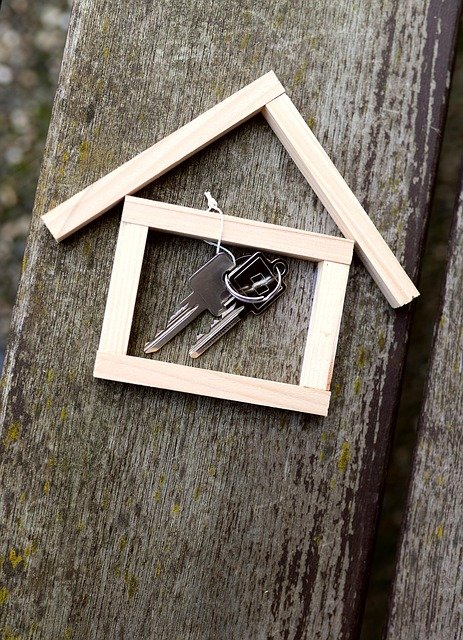Unlocking Hidden Potential: The Allure and Challenges of Buying Abandoned Houses
The concept of acquiring abandoned houses has garnered significant interest among property buyers, investors, and even the curious. These properties often come with a tantalizing mix of potential and risk, offering opportunities for restoration, investment, or transformation into something new. This article explores the phenomenon of abandoned houses for sale, focusing on what makes them attractive, the challenges involved, and how prospective buyers can navigate their purchase.

Cheap Charm: The Appeal of Bargain Homes to Restore
The primary attraction of abandoned properties lies in their typically low purchase prices, making them accessible to buyers with limited budgets. These homes often retain period features and architectural details that would be costly to replicate in modern construction. Victorian terraces, Georgian townhouses, and post-war properties frequently appear on the abandoned property market with original fireplaces, cornicing, and hardwood floors intact.
However, the initial low cost represents only the beginning of the financial commitment. Structural surveys often reveal extensive repairs needed for foundations, roofing, electrical systems, and plumbing. Buyers must budget for complete renovations, which can easily exceed the original purchase price by several multiples.
Hidden Gems or Hidden Problems in Property Investment
Distinguishing between genuinely valuable opportunities and problematic purchases requires thorough investigation. Properties may appear abandoned due to various circumstances including deceased estates, financial difficulties, or legal disputes. Each scenario presents different acquisition processes and potential complications.
Structural issues commonly found in abandoned properties include water damage from leaking roofs, rising damp, subsidence, and deteriorated utilities. Environmental concerns such as asbestos, lead paint, and contaminated land can significantly impact renovation costs and timelines. Professional surveys and environmental assessments become essential investments before committing to purchase.
Rebelling Against Conventional House Buying Methods
Acquiring abandoned properties often involves non-traditional purchasing routes. Auction houses frequently handle these sales, requiring cash purchases and rapid decision-making. Local councils sometimes sell properties acquired through compulsory purchase orders or for unpaid council tax. Probate sales occur when properties form part of contested or complex estates.
Direct approaches to property owners can sometimes yield opportunities, though this requires careful research through Land Registry records and respectful communication. Legal representation becomes crucial throughout these processes to ensure clear title transfer and identify any restrictions or obligations attached to the property.
Turning Ruins into Revenue Through Strategic Renovation
Successful renovation projects require detailed planning and realistic budgeting. Priority repairs typically focus on weatherproofing, structural integrity, and essential utilities before addressing cosmetic improvements. Planning permissions may be required for significant alterations, particularly in conservation areas or for listed buildings.
Revenue generation strategies include residential letting, holiday accommodation, or resale after renovation. Market research helps determine which approach offers optimal returns in specific locations. Urban areas often favour residential letting, while rural or tourist locations may support holiday rental businesses. Complete renovation and resale can provide substantial profits but requires significant capital investment and market timing considerations.
Cost Considerations and Market Comparison
Understanding the financial implications requires examining various cost components and available financing options across the market.
| Service Type | Provider Examples | Typical Cost Range |
|---|---|---|
| Property Auctions | SDL Auctions, Allsop | £500-£2,000+ fees |
| Building Surveys | RICS Surveyors | £800-£2,500 |
| Renovation Loans | Specialist Lenders | 6-12% interest rates |
| Complete Renovation | Local Contractors | £20,000-£80,000+ |
Prices, rates, or cost estimates mentioned in this article are based on the latest available information but may change over time. Independent research is advised before making financial decisions.
Risk Management: Your Guide to Buying Abandoned Properties
Effective risk management begins with comprehensive due diligence. Legal checks should verify ownership, identify any charges or restrictions, and confirm planning permission history. Financial planning must account for renovation costs, ongoing maintenance, insurance, and potential rental void periods.
Insurance for abandoned properties can be challenging to arrange and expensive due to increased risks of vandalism, theft, and weather damage. Some insurers specialise in renovation projects and unoccupied properties, offering tailored coverage options.
Building relationships with reliable contractors, architects, and project managers before beginning work helps ensure realistic timelines and budgets. Multiple quotations for major work help establish accurate cost expectations and identify potential issues early in the planning process.
Moving Forward with Abandoned Property Investment
Abandoned house investment requires patience, substantial financial resources, and tolerance for uncertainty. Successful investors typically focus on specific geographic areas to develop local knowledge and professional networks. Starting with less complex projects helps build experience and confidence before tackling more challenging renovations.
Market conditions, local regeneration plans, and transport links significantly influence long-term property values. Properties in areas scheduled for infrastructure improvements or urban regeneration often provide enhanced investment potential, though competition and prices may increase accordingly.




